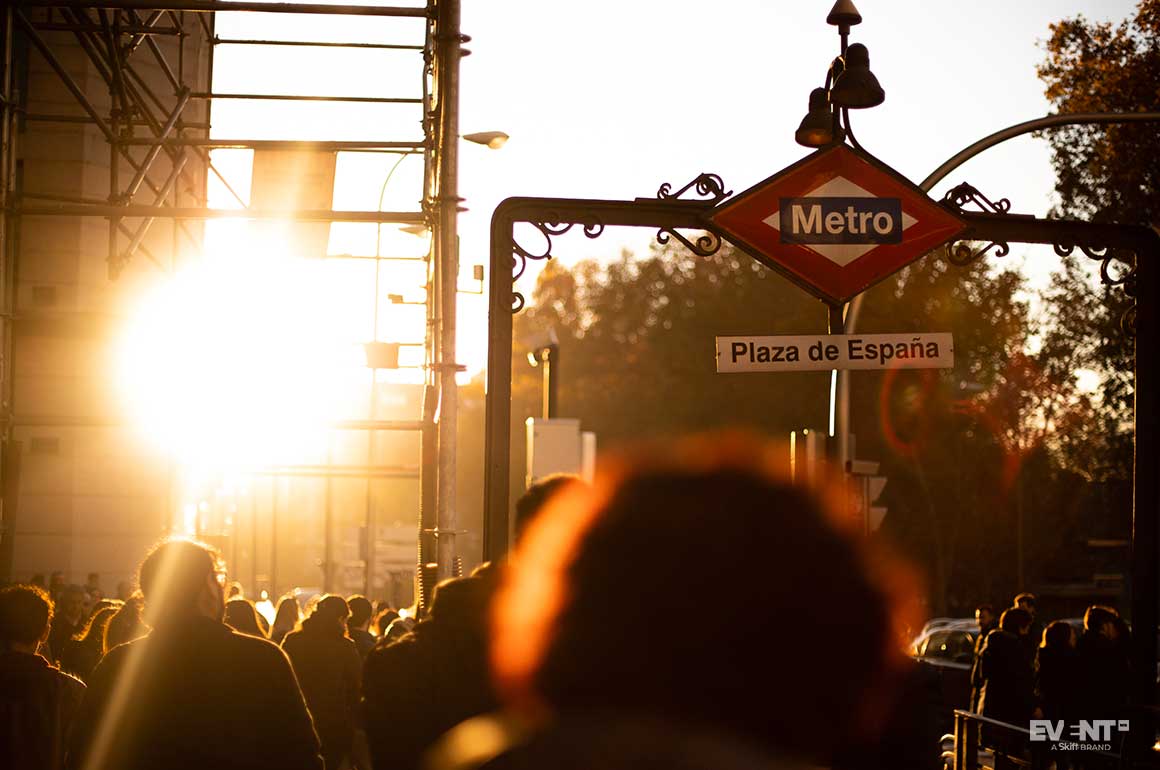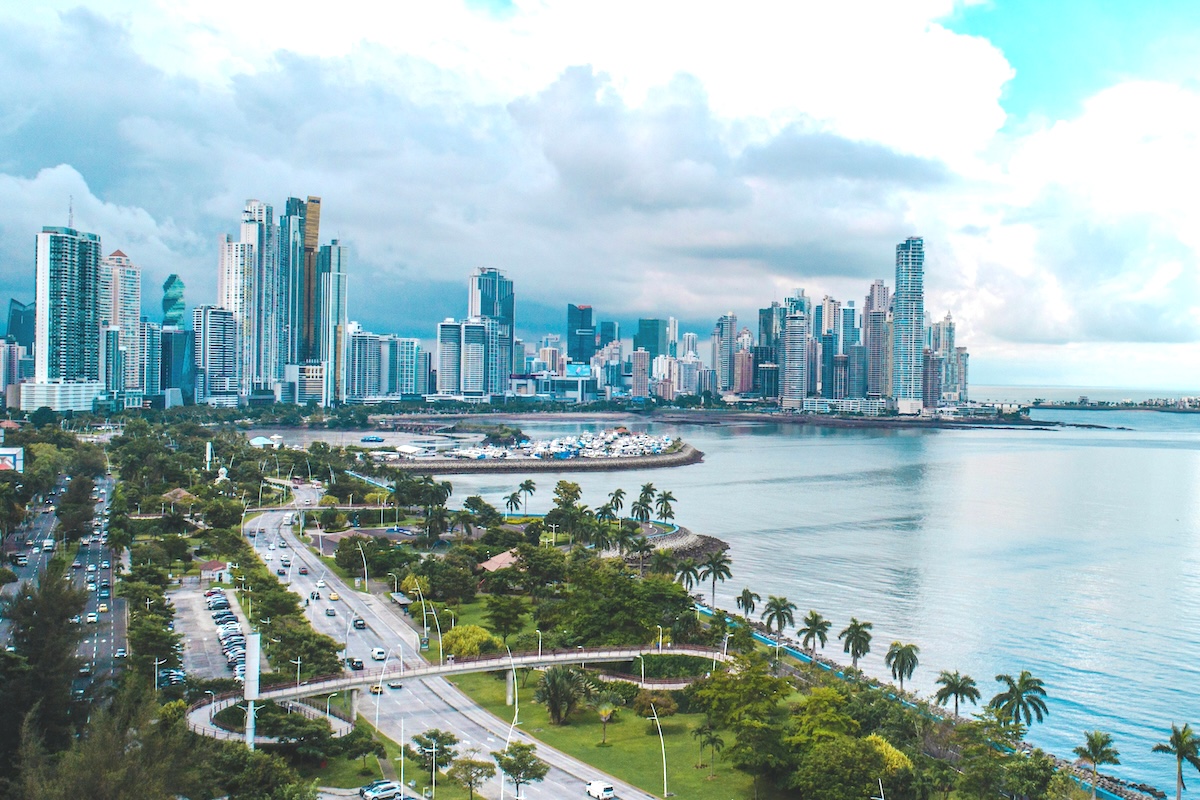Skift Take
With Barcelona’s 5,000-person concert and Madrid’s HIP Expo, Spain has been revving up its event sector alongside its tourism industry. But even if events continue to receive regulatory approval, the country’s rising case count could derail plans.
The Spanish government is stuck between a rock and a hard place: The industries that are most important to kick-starting its economy are also the biggest threat to its Covid progress. Tourism, hospitality, and events have traditionally been a major source of revenue for the country. Tourism alone represented 12 percent of Spain’s GDP prior to the pandemic, and in turn MICE-related travel accounted for 15 percent of tourism activity.
It is perhaps no surprise, then, that Spain’s business to business (B2B) event sector is leading the race to resume in-person events. The HIP Expo was the first major face-to-face trade show to be held in Europe this year, and it took place in Madrid’s IFEMA congress center — a site that once served as a makeshift field hospital during the first wave of the pandemic.
Has Spain come full circle? If the plans for Mobile World Congress 2021 are any indication, it would seem at first glance that the answer is yes. MWC 2020 was one of the first major B2B events to be cancelled last year, and in a dramatic reversal, its 2021 edition is set to be one of the first international trade shows to take place in Europe since the pandemic began.
Despite all these reasons for optimism, it cannot be ignored that Spain may be on the verge of a fourth wave. Even if local authorities resist another lockdown, rising case numbers could spell trouble for Spain’s B2B sector.
Corporate Hesitancy Defines B2B Events in Spain
For any major B2B event to move forward, organizers need buy-in from both regulatory agencies and their target market. With so many competing priorities hanging in the balance, several factors could potentially tip the scales for Spain’s event industry.
A closer look at Madrid’s recent HIP Expo reveals that the sector is still a long way from business as usual. The event ran from March 22 to 24 and attracted over 9,000 in-person registrants, but it had only one pavilion instead of its usual three. The explanation for these reduced numbers seems not to be a matter of regulatory limitations, but instead one of corporate reluctance to expose employees to potential transmission risk. Indeed, the event had to be postponed from February to March owing to the number of exhibitor cancellations it was facing at the time.
The upcoming ISE 2021 event paints a similar picture. It was originally planned as an international event to be hosted in Barcelona, but organizers have since switched to a “roadshow” format wherein smaller satellite events will take place consecutively in multiple locations across Europe. In a statement, the managing director Mike Blackman explained, “Our exhibitors have made it clear that there is a desire to get the industry together, but on a local level.” Barcelona is still on the roster, but it will primarily serve its regional market rather than act as a central hub for international buyers and sellers.
SO WILL MWC ACTUALLY HAPPEN?
If ISE shifted to a roadshow format in response to exhibitor pressure, it is conceivable that MWC may also have to reconsider its plan to hold a centralized international event in Barcelona. The first event in the ISE roadshow series is scheduled to start on June 1, and MWC 2021 is set to begin just four weeks later on June 28.
It may also be worth noting that MWC 2020 was not cancelled because the government enforced a lockdown, but instead because multiple big-name exhibitors had pulled out for fear of the potential health risks involved.
If anyone is aware of the risks, it’s MWC’s organizers. For their part, they’re planning a rigorous testing policy for onsite attendees — and providing avenues for virtual participation. The headline on its landing page reads, “The world’s biggest connectivity event goes fully hybrid.”
Will Spain Move Ahead at All Costs?
Even with Spain’s recent push to revive its tourism and events industries, it may be difficult to make any firm predictions about policies moving forward.
MWC 2021 is, after all, scheduled to take place over two and a half months from now. In the context of the uncertainty that Covid has wrought on all our lives, that timeframe translates to the distant future. It’s even feasible that a fourth wave could have come and gone by then.
On the regulatory side, the general trend appears to be towards reopening. While the Spanish government recently extended its requirement for a negative PCR test to travellers crossing its land border with France, the authorities have not given any indication that they might tighten travel restrictions further.
The current regulatory framework, however, is already attracting criticism — particularly regarding the rules that govern international travel. In what might seem like a topsy-turvy policy, the central government is allowing international EU travellers to enter the country, while local governments have forbidden Spanish citizens from crossing inter-regional borders. And much like the different branches of government within Spain, many locals are divided on whether the economic boost from international tourism is worth the corresponding risk in Covid transmission.
Which side will ultimately prevail?
The move to reopen is already having an impact on Covid numbers, but it’s not yet clear what influence these figures will have on government policy. The tourism hotspots of Costa Blanca and Valencia have seen their Covid infection rates almost double within the span of a week, but the Valencian government is still planning to loosen local restrictions even further — they reason that despite the recent surge in cases, their overall numbers remain low compared to the rest of Europe. Similarly, Mallorca’s Association of Music is lobbying to hold a 2,000-person concert modelled after the one in Barcelona, even though the island’s cases have doubled since loosening its Covid restrictions.
In the end, it may depend on whether cases reach levels high enough to overwhelm Spain’s healthcare system, which has dramatically increased its ICU capacity over the last year.
Another factor could be public perception of where to place blame. At the moment, the focus seems to be on illegal parties, which are often associated with foreign leisure tourists. By comparison, the relatively controlled environment of a business event may be able to fall under the radar of public scrutiny. While one news source published mild criticism of the HIP Expo for its lack of social distancing, most press reports and social media posts seem to emphasize the event’s success at enforcing a mask-wearing policy.
Even so, if international borders end up being closed, business travellers may have no more freedom of movement than their leisure counterparts.
IN CONCLUSION
While Spain’s recent success with hosting in-person events is certainly encouraging, it may be too early to predict a full-throttle recovery. A potential fourth wave could threaten both consumer confidence and regulatory progress towards reopening.
Unsurprisingly, event organizers are already developing workarounds for potential setbacks. ISE’s organizers have opted for smaller local events over a centralized international gathering, and MWC is emphasizing the option to connect remotely. The most successful events of the future may be those that have a fallback position built into the format itself.





